2 Filipinos: A Football Legend & A Spanish Prime Minister
Part of the reluctance of Filipinos to try something different has often had to do with the primordial fear of the unknown. Once Filipinos are used to one way of doing things, shifting over to a better paradigm or system which presents the better way of doing things is seen negatively. This kind of mentality used to kick in among a huge number of Filipinos whenever the subject of shifting from the dominant sport of Basketball to the more Filipino height-friendly sport of Football would come about. Excuses about Filipinos already being used to it or excuses like the so-called “cost of shifting from Basketball to Football would greatly exceed the returns” would be mentioned. This too is exactly the same type of knee-jerk thinking (or lack thereof) that kicks in every time a discussion pops up regarding the need to shift away from the extremely flawed and problematic Philippine Presidential System to the much more efficient, cost-effective, accountable, and stable Parliamentary System.
Thanks to the Philippine Football Team (fondly called “The Azkals” – a stylized slang term for “street dogs”) and their spectacular coming-from-behind performance from underdog to serious semi-finals contender, Filipinos are finally seeing the light! After years of seeing the Philippine Football Team continue to be the underdogs due to lack of support from the Filipino public and the dearth of financial sponsorship from companies, Filipinos now see hope in shining internationally with Football. This especially comes in the midst of many years of embarrassing international defeats in basketball despite “shooting hoops” being the Philippines’ national obsession. The “Azkals” have rightfully given Filipinos something to aspire to.
Filipino Excellence in Football is not new
The truth is that excelling in Football isn’t really new to Filipinos to begin with. The “Azkals” are simply reclaiming the history of excellence in Football that Filipinos have actually enjoyed at one point in our history. Unknown to many Filipinos, the greatest football striker in the history of the famous Spanish team FC Barcelona, fondly called “Barça” was a Filipino: Paulino Alcántara.
Born in 1896 in Iloilo to a Spanish father and an Ilongga mother, Paulino Alcántara y Riestrá was raised in the Philippines until he was between the age of 13 and 14 and moved to Barcelona where he was discovered and given the chance to join the professional FC Barcelona team where he became known as “El Romperedes” – the “net breaker”, as he is known to have broken nets due to the sheer strength of his kicks.
To this day, Paulino Alcántara remains Barça’s record holder with a total of 357 goals having appeared with FC Barcelona 357 times, and no one has come close to beating his record as a phenomenal striker. He is most remembered for a game against France in 1922, here he scored a powerful goal from 30 yards away, with the French goalkeeper having been totally unable to prevent it from coming through.
He had a little hiatus away from Barcelona when his family returned to the Philippines in 1916 where the young Paulino likewise played for the Philippine Football Team, bringing it to 2nd place against Japan in the Far East Championship Games in 1917. While in the Philippines, he also excelled in international table tennis!
In the meantime, with Paulino away from Barça, his old team wasn’t doing very well, since he was their star striker and there was no one else who could fill in his shoes. He later returned to Barcelona after his old team kept begging him to return and the team found itself winning once again. But lest we all think sports (football and table tennis) defined “El Romperedes”, it actually turns out that in the midst of his very successful professional football career, he was also studying to become a doctor. When in 1920, Paulino was scheduled to take academic examinations for his medical studies, he turned down the chance to play for the Spanish National Team as he needed to concentrate on studying for his exams.
The Legend of Paulino Alcántara, a Filipino – born and raised in the Philippines who also had the chance to represent the Philippines in both Football and Table Tennis – is solid proof that Filipinos have excelled in football and that the Beautiful Game is not some new undertaking in which we have no experience.
Filipino Excellence in the Parliamentary System is not new either
While it is clear thanks to the example of Paulino Alcántara that Filipinos have it in us to succeed in Football and that the Azkals’ recent performance is really just all about reclaiming our glory in a sport more suited to us, there actually also exists a solid example of the ability of Filipinos to perform well within the parliamentary system. While we’ve had a Filipino figure prominently in Football as FC Barcelona’s all time highest goal-scorer, we’ve also had a Filipino excel within Spain’s own Parliamentary System by becoming a three-time Prime Minister of Spain!

originally called “Azcárraga” after the family of Marcelo Azcárraga, small-minded Filipino politicians renamed it to C.M. Recto
Born in Manila in 1832 to a Basque Spanish father (a general, later turned bookseller) and a mestiza-Bicolana mother from Albay, Marcelo de Azcárraga y Palmero – just like Paulino Alcántara – was raised in the Philippines, and studied law at the Universidad de Santo Tomás in Manila (“UST”) before moving on to the Nautical School and then transferred to Spain to attend a military academy. Thanks to a distinguished military career where he rose to become a general in the Army, upon retirement from his military carreer, Azcárraga shifted to Spanish politics and became a leading member of the pro-Monarchy Conservative Party. From being a Senator, he later became the top-ranking Minister of War in the Conservative Party’s cabinet and succeeded on to become the interim Prime Minister of Spain after his party’s leader, Antonio Cánovas del Castillo, was assassinated in 1897. He again went on to become Prime Minister in two separate incidents.
Respected and remembered in Spain, where he was given the Golden Fleece award for defending the Spanish Monarchy and is the highest possible award that any person can be awarded in Spain, Azcárraga was originally honored in Manila with a long avenue that was named after his illustrious family. That avenue, originally called Calle Azcárraga, is now known simply as “Recto” after a series of name-changes were pushed in 1961. Nevertheless, numerous Tondo and Manila natives still refer to Recto as “Azcárraga” just as practically everyone in Metro Manila still calls “Sen. Gil Puyat Avenue” by its original name “Buendía.”
Born and raised in the Philippines, excelled in Spain
The existence of both prime examples of Filipino excellence in both Spanish Football and the Spanish Parliamentary System not only prove that Filipinos have had past experience in both fields of endeavor, it also confirms that Spain has also never had any real issues with allowing Philippine-born Filipinos to meritocratically rise up to the top of the food chain in “la Madre Patria.” (Spain)
It will be recalled that during the 1884 Madrid Exposition of Fine Arts, the famous Filipino painter Juan Luna won three gold medals for his famous masterpiece “Spoliarium” and was accompanied by Félix Resurrección Hidalgo’s silver medal. Would these Philippine-born Filipinos who were not European creoles been awarded and showered with accolades had the Spaniards been the “racist chauvinists” certain historians with flawed pseudo-nationalist political agendas make them out to be?
The 1884 awards for Fine Arts were not going to be the one and only time when Spanish egalitarian attitudes towards Filipinos would become evident, as this was followed up with half-Pinoy and Manila-born (and raised) Marcelo de Azcárraga’s ascent to Prime Minister in Spain’s Cortes in 1897, half-Pinoy and Iloilo-born (and raised) Paulino Alcántara’s cult-following as FC Barcelona’s (and the Spanish Football Team’s) star striker, and in more recent history with Manila-born (and raised) Isabel Preysler’s emergence as Spain’s most famous media celebrity to consistently grace the pages of Spain’s glossy magazines.
(Tip: Any showbiz, fashion, or glossy lifestyle magazine randomly taken off a stand in any major Spanish city is 100% sure to have at least one picture of Isabel Preysler found within its pages.)
Incidentally, Isabel Preysler – who in 1991, 2002, and 2006, was voted “most elegant and best-dressed woman in Spain” – is the ex-wife of ex-footballer and singing sensation Julio Iglesias and the mother of world famous half-Spanish, half-Filipino singing sensation Enrique Iglesias.
Rethinking our US-only focus & rediscovering our Spanish heritage

NBA’ers Le Bron James and Anthony Carmelo looking sad after losing to the Greek team which did not have any superstars
Basketball and the deeply-flawed Philippine Presidential System are two examples of colossal failures for Filipinos which were bequeathed to us by the United States of America. Far too many misguided Filipinos have continued to defend such an infatuation with everything American, using the tired old argument that since the USA is currently the world’s largest economy and world’s foremost superpower, whatever the USA does is “the best.”
This needs to be seriously re-evaluated as the performance of the USA itself in Basketball has proven to be an even greater colossal failure on the world stage as US Basketball Teams, in all categories – youth, adult, and even professional – continue to consistently get clobbered by so many other teams primarily from Europe and even Latin America. Ever since the year 2000, European-style basketball, whose general playing philosophy is heavily rooted in Football’s heritage of heavy ball-passing, strong-defense, and an almost extreme emphasis on cooperation and teamwork, has on the average reigned supreme over America’s Basketball players’ superstar attitudes and egotism.
Game after game, whenever the US faces a European basketball team, the “unthinkable” happens: The US Basketball Team loses most of the time. Whether the USA plays against the basketball powerhouses of the former Yugoslavia – Serbia or Croatia, or against Spain, Greece, or even Latin American teams like Argentina – usually known more for Football than Basketball, the results are usually the same: The USA consistently and pathetically loses.
(Luckily, many Americans do tend to be self-critical enough to admit when something needs to be changed, and thus articles do get written which focus on highlighting the problem in order to get everyone realizing the need to solve it.)

Team USA being beaten by Serbia in the Youth Olympics in Singapore — Score on the board: Serbia 30; USA 27
This has extremely broad and intense implications for the future of Philippine Basketball as Pinoy players and fans continue to be uncritically infatuated with and transfixed on America’s NBA games, which have consistently promoted individualism and egotistic playing-styles where selfish monopoly of the ball is the norm and ball-passing assists are considered only as a “last resort.” The end-result of this NBA-centric paradigm has resulted in the Philippines’ consistently mediocre results in international basketball meets against countries where basketball is not even one of the top 3 sports played or followed.
Be it a basketball game pitting the Philippines against Kazakhstan, Singapore, Malaysia, South Korea, Lebanon, or others, all of whom are primarily Football-centric countries, the result is the same: The Philippines loses to them in Basketball!
Clearly, this consistent barrage of slaps-on-our-faces should serve as a wake-up call to our continued unthinking infatuation with the American way of doing things as our failure in Basketball is not only a result of our obvious lack of height in a game that mandates it as a minimum requirement, but it is also clearly the result of our collective refusal to look at and learn from other paradigms coming from other societies (such as European or other societies) which may actually be better-fits with our inherent cultural tendencies or inclinations.

Lebanon – 93 clobbers the Basketball-crazy Philippines – 75: That’s because we copy the USA’s Primadonna Paradigm
The American Primadonna Paradigm has always been one that exalts personal glory and individual achievement above all else. Not only does this extend to the American Political System and American Sports, this also extends to American Pop Music, where solo artists abound in America whereas the British are a lot more into bands.
By itself, an emphasis on Individualism is not bad. However, it tends to spell total disaster in team sports where cooperation is supposed to reign supreme over ego and personal glory. Furthermore, Filipinos are actually much more predisposed towards collective undertakings as evidenced by our tendency to do things as a group (something which we actually share with fellow Asians and even with Southern Europeans/Latins), as exemplified by the oft-touted Bayanihan spirit. The heavy emphasis on rugged American individualism is again, by itself, not bad, but it actually does come in direct conflict with our natural tendencies and therefore contributes to a certain level of confusion.
On the one hand, our models for sports – based on the individualistic nature of American Basketball as seen in the NBA – confuses us to go against our own inherent group-based tendencies, and this too is very much evident in our model for governance which is also based on the American Presidential System, itself a highly individualistic, primadonna-based, and personality-heavy system that exalts one individual (the Presidential Candidate) over and above the team (the Political Party).
On the political system front, the US Presidential System is itself under intense fire from among America’s very own intellectuals. Leading intellectuals from the USA such as Dr. Arend Lijphart, Dr. Juan Linz, and even CNN’s and Time’s Dr. Fareed Zakaria all point to the US Presidential System as being fundamentally-flawed and in fact serve to hobble the US from reaching its full potential.
In one of Dr. Zakaria’s recent articles on Time Magazine, entitled “How to Restore the American Dream”, he writes towards the end of his piece:
“People often note that America’s political system is broken. Perhaps the truth is more awkward: America needs radical change, and it has an 18th century system determined to check and balance the absolute power of a monarchy. It is designed for gridlock at a moment when quick and large-scale action is our only hope.”
Another political and policy commentator from the USA, Craig Ruff, has also criticized the US Presidential System and clearly points out the superiority of the Parliamentary System. In his article “Parliament Works Better”, Ruff states:
“America’s love affair with separate powers assumes strange things: a) a leader cannot be both a maker and implementer of policy; b) it is wicked to entrust the well-being of people to a coherent political party, as opposed to special interests piecemealing public policies; c) one party’s good showing at one election breeds irreversible despotism; d) cults of personality are healthier to democracy than intelligible reasoning and a coherent, guiding philosophy; and e) a bedsheet ballot of nondescript individuals defines the public will.
In stark contrast, consider a parliamentary system that produces: a) robust and seasoned thinkers who understand the making and execution of law; b) accountable leaders of parties, as opposed to unaccountable associations and lobbyists; c) elections whenever a leader loses the public’s and party’s faith and trust; d) ennobling philosophical disputes instead of du jour flaming; and e) unified but reversible law making.”
Another American PhD, Dr. Lee Drutman, a senior fellow at the Progressive Policy institute and managing editor of ProgressiveFix.org wrote an article entitled “Dismissing Gridlock: A Case for Parliamentary Systems” where he interviewed two political science PhD’s from Boston University, John Gerring and Strom Thacker and wrote:
“The United States is not about to up and rewrite its constitution to create a parliamentary system.
But if it were up to Gerring and Thacker, it certainly should. As Gerring put it, “There’s very little to defend the current system.” Thacker, meanwhile, noted that for a country with our level of economic development, the United States doesn’t do nearly as well as we might be expected to do across a broad range of human development outcomes. “For a rich country, we should be doing better,” he said.
Still, constitutional reform is a live issue in many countries around the world, as well as for those who think about nation-building. And the lessons from Gerring and Thacker do seem clear: Parliamentary systems that institutionalize coordination and compromise consistently produce better outcomes than presidential systems that institutionalize conflict and confrontation.”
Quite clearly, there is an ever-increasing number of US-based intellectuals who have decided to look squarely at reality and determine what exactly it is that has enabled the USA to succeed. As a result, more and more Americans are in fact realizing that America’s success happened despite (not because of) its use of the Presidential System. Truth be told, America’s success is directly a result of being the World’s Largest Immigrant Nation, where an overwhelming majority of today’s Americans are themselves first-generation immigrants, sons and daughters of immigrants, or people who can easily trace themselves as being 5th or 6th-generation immigrants, and thus are still quite conscious of the need to excel and live up to the hard-working immigrant ethos of their immigrant ancestors.
Evidently, two of America’s “gifts” to the Philippines – Basketball and the US Presidential System – have unfortunately bombed when transplanted to our shores and worse, are likewise areas where the USA is itself having major challenges as US Basketball Teams continue to keep losing against teams from countries steeped in more cooperative and team-based traditions of Football (Soccer) as their primary sport, and where the United States’ own Presidential System is now increasingly coming under fire from within the entire US Political Science Academia and Intelligentsia for its unwieldy and gridlock-prone structural set-up.
Instead of looking only to the US for inspiration, it may actually serve us well to derive inspiration from numerous other societies and more importantly re-embrace our Spanish heritage. After all, Spain is both a Football-centric country and uses a Parliamentary System and we share a much deeper set of commonalities with Spain than with the USA.
Spain is a better model for Filipinos to emulate than the USA
Filipinos have much to learn by simply looking further back to our history and looking past the over-hyped American influences in both Basketball and the Presidential System.
First off, we need to remember that the Azkals are not the first group of Filipinos to do well in the sport of Football. We’ve had a Filipino – born and raised in the Philippines – who rose to become a football hero in Spain, and holds the distinction of being F.C. Barcelona’s all-time highest goal-scorer in all of the club’s history and a committed doctor of medicine: Dr. Paulino Alcántara y Riestrá.
Secondly, we’ve had a Filipino – born and raised in the Philippines – who excelled in Spain’s Parliamentary System. This Filipino started off in a military career, became a high-ranking general, rose to become a high-ranking Minister in Spain’s cabinet and even went on to become a three-time Prime Minister of Spain: Marcelo Azcárraga y Palmero.
Two questions need to be asked regarding our infatuation with all things American:
(1) Have we ever had a Filipino basketball player get into the NBA?
(2) Has a person of Filipino descent ever become President of the USA or at least become a high-ranking US cabinet secretary?
The answer is clearly a big NO on both counts.
(Having a Filipina Chef serve in the White House does not count for number 2!)
Between the two former colonizers, Spain has proven to be the country that has treated Filipinos – regardless of racial background – as true equals, granting all Filipinos with full Spanish citizenship and giving equal opportunities for Filipinos to excel and reach the top as exemplified by high honors presented to Juan Luna and Félix Resurrección Hidalgo in the arts and the rise of Philippine-born Filipinos (who at the time were full Spanish citizens) such as Azcárraga and Alcántara to the top of their fields. With these facts, it thus comes as no surprise that José Rizal and many of his friends and fellow Filipino expats in Spain and Europe such as Antonio Luna were said to have staunchly advocated integration into Spain rather than outright independence: It was clear to them that better political integration and assimilation with Peninsular Spain would have allowed competent Filipinos to easily rise to the top.
(In fact, Antonio Luna remained a pro-Spain loyalist – like Rizal – until after the Spaniards surrendered to the Americans in 1898 and it became clear that the Americans were planning to take over the Philippines. It was at that point when officers and soldiers of the Spanish Army, along with other Spanish loyalists joined forces with Aguinaldo’s Katipunan forces to repel the Anglo-Saxon invaders just as Filipinos and Spanish authorities had done much earlier when another Anglo-Saxon invader – the British – tried to take over the Philippines.)
It’s high time we Filipinos acknowledged that not only do we have much more in common with Spain – in terms of culture and heritage – than with the USA, but also that we Filipinos have had the opportunity to excel in two things that are more associated with Spain than the USA, and are more appropriate to our situation: Football and the Parliamentary System.
* * *
Here are some related articles:
1. Philippine Progress: Shift in Sports, Shift in System by yours truly
2. Sen. Pangilinan and the Parliamentary System by yours truly
3. Parliament Fits the Philippines by yours truly
4. F to A: What P-Noy Needs to do in order to Succeed by yours truly
5. Should the Philippines Turn Parliamentary? by Florencio “Butch” Abad
* * *
About the Author
 Orion Pérez Dumdum comes from an IT background and analyzes systems the way they should be: logically and objectively.
Orion Pérez Dumdum comes from an IT background and analyzes systems the way they should be: logically and objectively.
Being an Overseas Filipino Worker himself, he has seen firsthand how the dearth of investment – both local and foreign – is the cause of the high unemployment and underemployment that exists in the Philippines as well as the low salaries earned by people who do have jobs.Being Cebuano (half-Cebuano, half-Tagalog), and having lived in Cebu, he is a staunch supporter of Federalism.
Having lived in progressive countries which use parliamentary systems, Orion has seen first hand the difference in the quality of discussions and debates of both systems, finding that while discussions in the Philippines are mostly filled with polemical sophistry often focused on trivial and petty concerns, discussions and debates in the Parliamentary-based countries he’s lived in have often focused on the most practical and most important points.
Orion first achieved fame as one of the most remembered and most impressive among the winners of the popular RPN-9 Quiz Show “Battle of the Brains”, and got a piece he wrote – “The Parable of the Mountain Bike” – featured in Bob Ong’s first bestselling compilation of essays “Bakit Baligtad Magbasa ng Libro ang mga Pilipino?” He is the principal co-founder of the CoRRECT™ Movement and spearheads the campaign to inform the Filipino Public about the urgent need for Constitutional Reform & Rectification for Economic Competitiveness & Transformation.













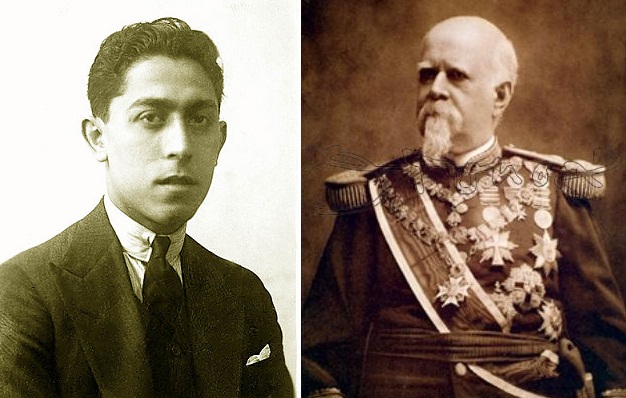

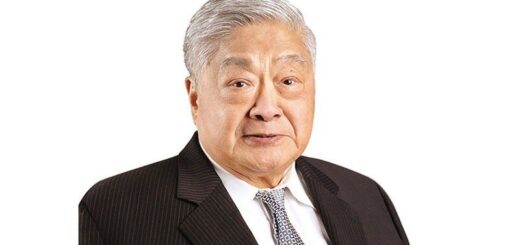





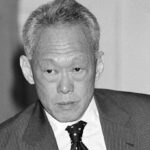
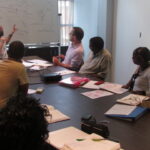










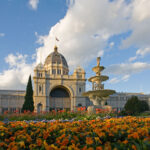
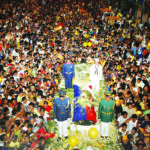

Hi,
Your article is very informative to be completely honest especially that being at the top doesn’t always mean you’re the best in everything like your example in the USA. Honestly most of the EU countries are financially stable than the United States and when it comes to sports they can really par with the USA too. Set the fact that the United States lost most of its declared war in some regions of the world take Vietnam and Iraq as an example, they lost many great men and women during those wars. Meanwhile in Europe some countries there declared war to each other like in the start and end of the 90’s but bot parties realized that “shit this just isn’t right. Hey you! how about we get some tea and lets settle this one out.”. Well with sports, this is a new discovery to me that a Filipino had made it to the records in the game of Football, kudos to that! I’m not a fan of football nor basketball but I think Filipinos excel more in boxing, billiards, badminton, and other individual and two player sports(whatever you call that, tag team?). The problem with group games like basketball and football when Filipinos get in the picture is that they lack team-work. The mentality of “I am more popular than you so give me the ball and I’ll win the game.” is our common problems and the “pogi ako dapat ako ang bida lagi” too.
I’m new to the site and I think I will really love it here.
Joseph